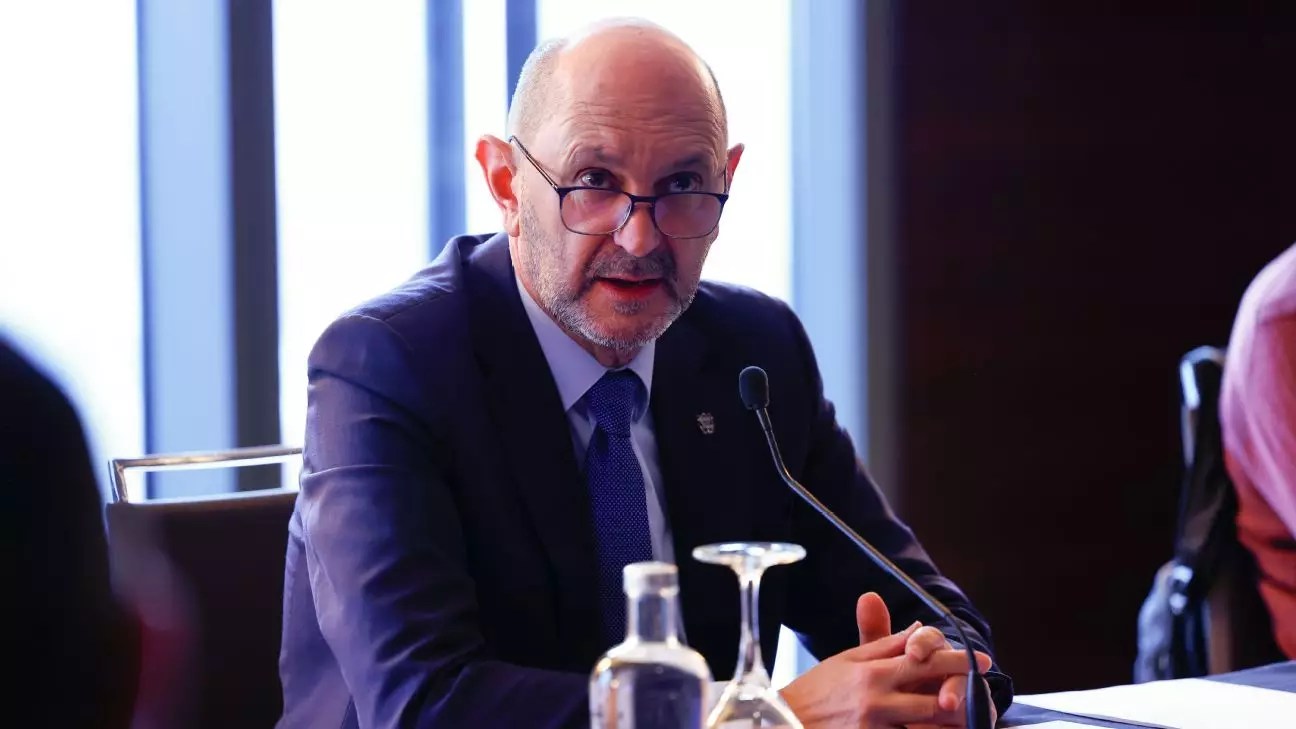Rafael Louzan’s election as the new president of the Royal Spanish Football Federation (RFEF) marks a pivotal moment for Spanish football, especially in these tumultuous times. Elected on a decisive Monday, Louzan takes the helm under a cloud of recent controversies that have beset the federation. His election came shortly after FIFA confirmed Spain’s participation in the highly coveted 2030 World Cup, alongside Portugal and Morocco, showcasing a layer of optimism despite the underlying chaos within the organization.
At 57, Louzan brings experience from his role in the Galician Football Federation and his time on the RFEF’s executive committee since December 2019. However, his journey to this position is not without its own drawbacks. He enters the presidency while appealing a seven-year ban from holding public office—imposed following misconduct during his time as the president of the Pontevedra Provincial Council. This significant blemish raises questions about his leadership legibility. The fact that he managed to secure the presidency despite such a serious legal issue points to a complex political landscape within Spanish football, where loyalty and relationships may have outweighed ethical considerations.
The RFEF’s challenges cannot be fully understood without acknowledging the fallout from the infamous incident involving former president Luis Rubiales. A unsolicited kiss aimed at player Jenni Hermoso after the Women’s World Cup victory in August 2023 led to widespread condemnation, Rubiales’ swift resignation, and more importantly, a crisis of confidence in the Federation. This string of events left RFEF in disarray and set the stage for Louzan’s election amidst calls for reform and stability. His ascent comes at a time when the federation desperately needs assurance and direction to move forward.
In response to the chaos, the Spanish government had to step in, forming a special committee to oversee the operations of the RFEF. This intervention underscores the extent of the trouble within the federation and the urgency of restoring public trust. With FIFA’s stipulation that a new president must be in place before the end of 2024 to avoid jeopardizing Spain’s World Cup hosting rights, there is an enormous weight on Louzan’s shoulders as he embarks on his four-year term. The threats posed by FIFA are not just bureaucratic but reflect the potential loss of prestige and revenue associated with hosting global football events.
As Louzan assumes his role, stakeholders in Spanish football—players, clubs, and fans alike—are hoping for a shift towards stability and respectability. The challenge will be to navigate through the legacy of his predecessors while also paving a new path forward. The RFEF requires urgent reforms, transparency, and accountability, and it remains to be seen whether Louzan can rise above the controversies that shrouded his election. With the 2030 World Cup both a light at the end of the tunnel and a potential make-or-break scenario for Spanish football’s international standing, the pressure is undeniably high for Rafael Louzan to lead with integrity and vision.


Leave a Reply